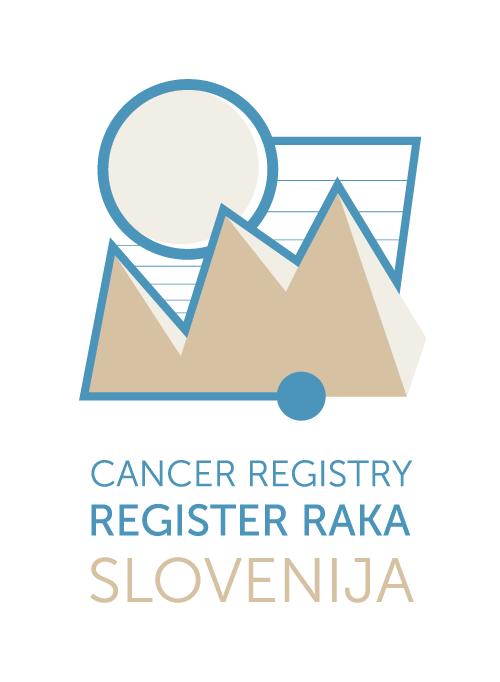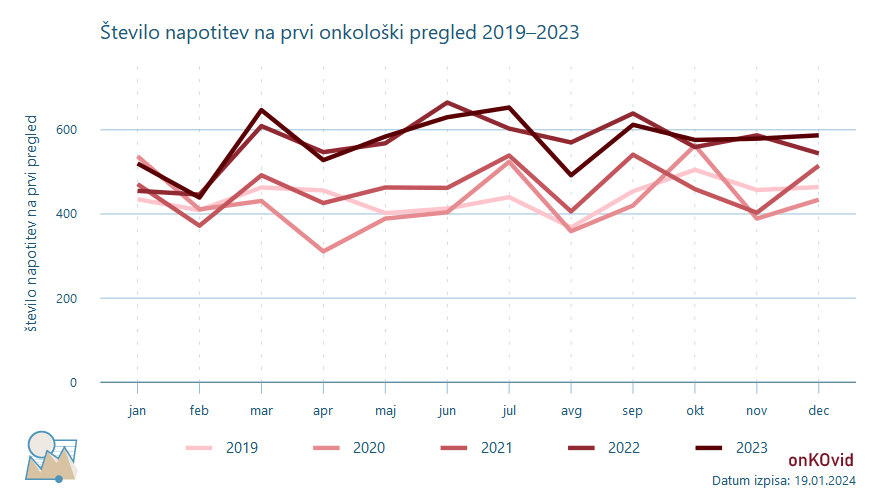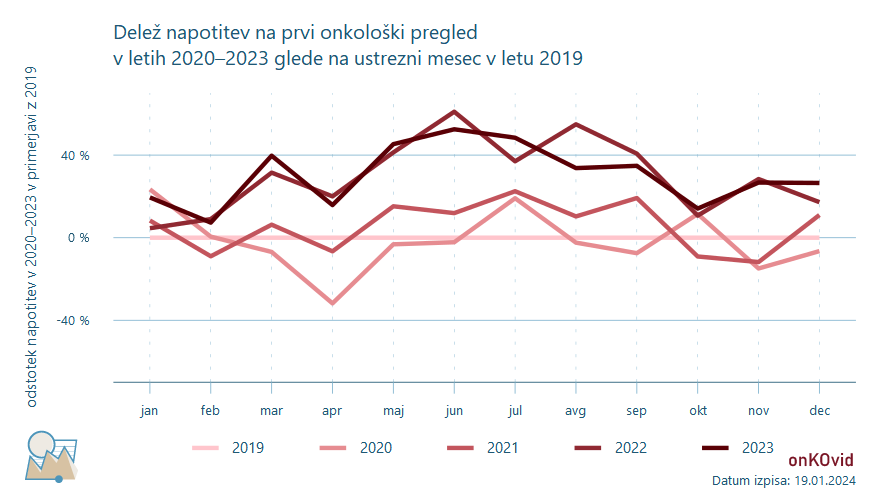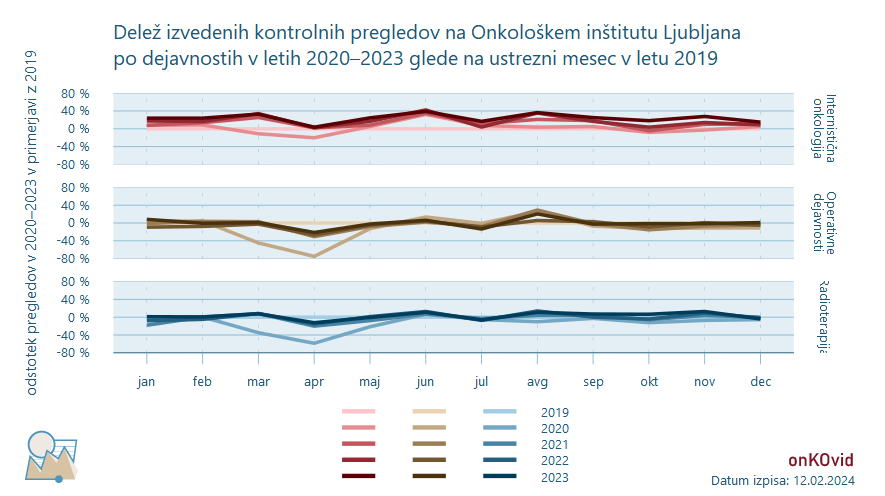Metodologija
Projekt OnKOvid je bil zaključen z decembrom 2023. Vsebuje podatke iz obdobja 2019-2023.
Register raka Republike Slovenije je nacionalna služba za sistematično zbiranje, shranjevanje, analizo, interpretacijo in predstavljanje podatkov o bolnikih z rakom, o njihovi bolezni in obravnavi. Zaradi kompleksnega procesa zbiranja podatkov, preverjanja kakovosti in kodiranja v skladu z mednarodnimi klasifikacijami, je običajen postopek registracije novega primera raka zamuden in tako praviloma uporabnikom populacijskih registrov raka na voljo šele z zamikom dveh do treh let. Sprotno lahko stanje spremljajo le tisti registri, kjer imajo na nacionalni ravni vzpostavljene elektronske poti za pridobivanje in analizo podatkov. Ponosni smo, da z našim registrom spadamo Slovenci med redke svetovne registre, ki lahko kratkoročne ocene vpliva epidemije vrednotimo že med epidemijo ali takoj po njej, saj v Register raka podatke elektronsko sporoča večina slovenskih bolnišnic ter dva večja patohistološka laboratorija (Onkološki inštitut Ljubljana in UKC Maribor).
Številke o ugotovljenih novih primerih raka na portalu onKOvid ne odražajo dokončne incidence raka v Sloveniji, saj so na onKOvidu objavljeni preliminarni podatki, saj še niso pregledani in obdelani po klasičnih postopkih Registra raka. Ista oseba se lahko pojavi na poročilih več virov, podatki na viru pa so lahko tudi napačni (npr. mejno maligni tumor se poroča kot maligen).
Bolnišnice, ki v Register raka sporočajo podatke o obravnavah novih onkoloških bolnikov in njihove podatke vključujemo v prikaze onKOvid:
- Onkološki inštitut Ljubljana
- Univerzitetni klinični center Maribor
Napotitve na onkološke obravnave
Zdravstvena napotnica je v slovenskem zdravstvenem sistemu dokument, s katerim osebni ali drug zdravnik napoti zavarovano osebo na specialistični pregled ali poseg. Od leta 2017 potekajo v Sloveniji napotitve elektronsko, pregled vseh e-napotitev vodi Nacionalni inštitut za javno zdravje (NIJZ). Za potrebe platforme onKOvid pridobivamo mesečno iz zbirke e-napotnic NIJZ podatke o napotitvah na izbrane vrste onkoloških zdravstvenih storitev: onkološki pregled prvi, onkološki pregled kontrolni in napotitev na onkološko genetsko svetovanje in testiranje. Vključene vrste zdravstvene dejavnosti (VZD) so 1029, 1030, 2396, 2470 in 2587. Podatki so na NIJZ dostopni z zamikom enega meseca.
Izvedene obravnave na Onkološkem inštitutu
Podatke o pregledih in storitvah opravljenih na Onkološkem inštitutu Ljubljana onKOvid pridobiva iz mesečnih administrativnih in obračunskih poročil inštituta. Podatki so na voljo z zamikom enega meseca.
Prikaz podatkov
Podatke prikazujemo na dva načina:
1. Prikaz absolutnega števila, kjer podajamo absolutno številko za različna leta: 2019, 2020 in 2021. Npr.: v letu 2019 je bilo marca 463 novih napotitev na prvi onkološki pregled (na OIL), v letu 2020 431, v letu 2021 pa 492.
2. Prikaz razlik v deležih med leti, kjer je leto 2019 osnova in ga predstavlja črta pri 0 %, vrednosti za ostala leta pa so podana kot delež spremembe glede na leto 2019. Npr.: V letu 2020 je bilo v mesecu marcu za 6,9 % manj napotitev na prvi onkološki pregled na OIL glede na marec leta 2019.
3. Prikaz razlik med številom obravnav v različnih sektorjih/za različne preiskave z uporabo vrste grafa, ki je bil opisan v točki 2.







